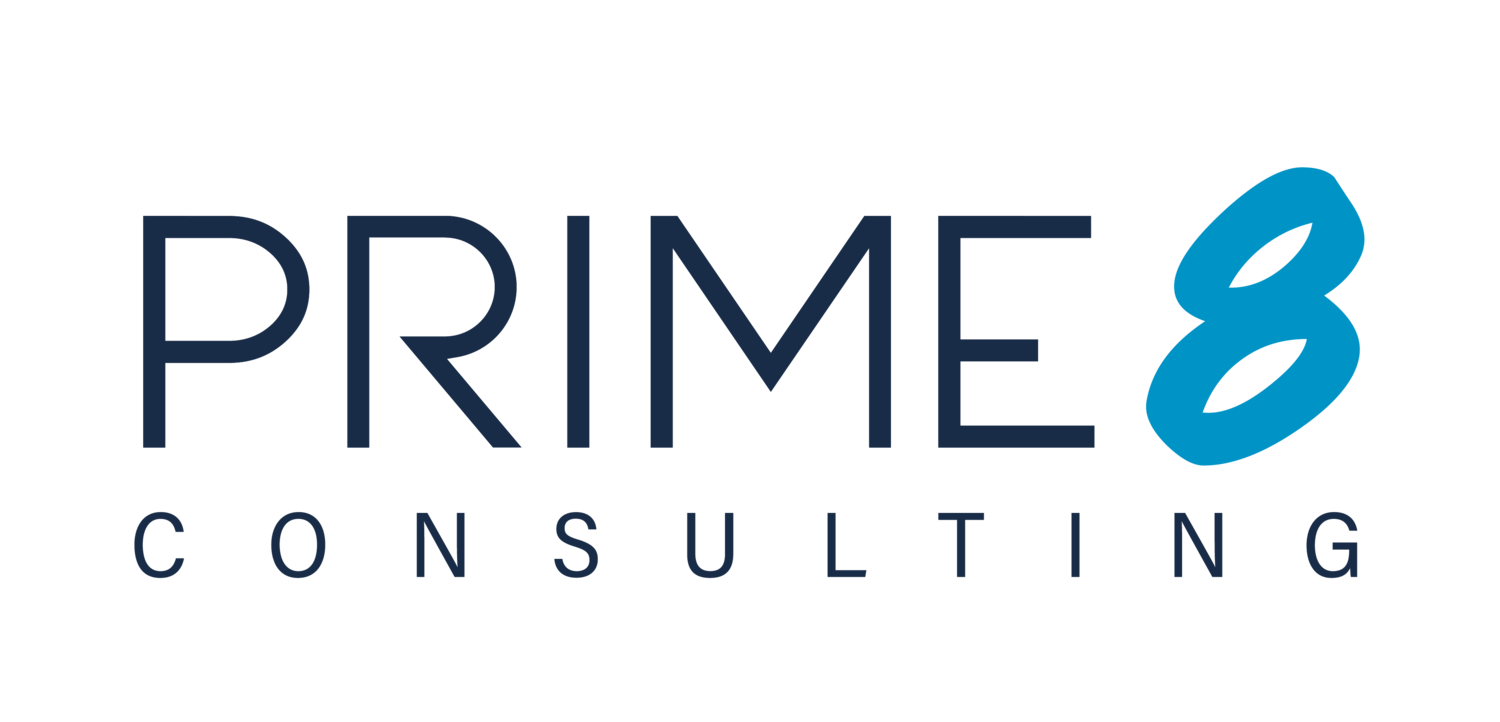How to Be an Ally for Women in Tech
The theme of 2022’s International Women’s Day was “Break the Bias.” That theme was chosen for good reason. Gender bias and other forms of bias are sadly unavoidable in business.
A prime example is the tech industry, which has historically been a male-dominated sector. Despite the fact that women now make up 47% of the workforce, only about 25% of women hold tech roles. Of those, only 9% of roles belong to minority women.
Exception to the Rule
That’s not to say that every tech company has an inherent bias. We’re proud of our history of supporting women in the tech industry. Being woman-owned has driven our culture of gender equality, even before it was cool.
At Prime 8, diversity and inclusion is not just some HR initiative. It’s embedded in our company DNA. It’s all about how we choose to work every day with our clients and consultants, how we attract and retain individuals to our team, and how we engage with our community.
Currently, nearly 70% of our workforce is female, virtually unheard of in our industry! We believe that the inclusive recruiting strategies we use and the work environment we have built is what sets us apart from our competitors - we’re more innovative, more creative, and better problems solvers.
That said, we realize that there is a still a long way to go to make the gender gap a thing of the past in tech.
Closing the Gender Gap
Bias is not the only factor that contributes to the gender-in-tech gap. Education, the pandemic, and even workplace culture all play a role. Regardless of what has caused the gap, the stark truth is that the gap is not likely to close itself. Both men and women can play a an active role in supporting and advocating for women in tech.
What can you do? Here are some tips to become a real ally for the women in your workplace:
1. Get Real about Your Own Bias
Gender bias is not always overt, and it can be easy to miss and easy to ignore. However, hidden biases are often much harder to overcome than the in-your-face bias that sometimes exists. Spend some introspective time thinking about your own ideas about women in tech and root out any hidden biases you may be harboring. Question your own assumptions about women in tech and be honest about the answers you discover.
Some questions for reflection:
Do you find yourself interrupting women when they’re speaking in a meeting?
Do you automatically assume that when someone in the family is in need, it should be the woman who takes family leave to provide care?
In a team situation, are you more likely to ask a woman on the team to perform simple administrative functions than a man?
Are you equally comfortable with a man or a woman boss or colleague?
Educate yourself about gender discrimination in all its forms. Learn to spot systematic bias in yourself and your company culture. When you spot it in yourself, work to make changes. When you see it in the workplace, identify it and call it out. Champion the women in your workplace when you see gender inequality rearing its ugly head.
2. Listen to Women
This may seem like a no-brainer, but if you want to know how best to support women in your workplace, ask them. Listen to their lived experience. Learn how they perceive your company culture and what challenges they are facing day-to-day in the workplace.
In addition to listening to the first-hand experiences of women on your team, pay attention to the voices of other women as well, via social media, podcasts, blog posts, and articles about women in tech. Join organizations that support women in tech, and give generously of your time and energy.
Model appropriate behavior in the workplace when women are speaking. For example, when a female colleague is making a presentation, avoid checking your emails, texting your fellow workers, or doing anything else other than paying attention to the presentation. Show her respect by giving her your full attention. When others see that you value what is being said, they will be more likely to listen as well.
In a brainstorming session, be conscious of sharing the thinking space with women and highlight the ideas they share. Actively advocate for equality by sharing the spotlight with female coworkers if they have contributed to the success of a team project.
3. Call Out Bad Behavior on the Spot
Whether you are a manager or an individual contributor, object to workplace bias vocally when you witness it. Call attention to discrimination in the workplace and make a stand for real equality. If you are in a position of leadership, modeling appropriate behavior while denouncing inappropriate behavior is a strong signal that gender equality matters to you and that you are an ally to the women in your workplace.
For example, suppose someone on your team tells a joke that would be offensive to women. Rather than simply ignore it, you might speak up and say something like: “I don’t think that’s funny, and it is not in harmony with the company’s expectations about how to treat others.”
If you are presiding over a meeting and you note that a fellow employee is constantly interrupting a woman on the team when she tries to participate in the discussion, you might say: “I appreciate your passion for the subject, but I think you inadvertently interrupted (insert name). Please give everyone a chance to share their thoughts so we have all the input we need.”
It may be uncomfortable at first to call out bad behavior on the spot, but ultimately, doing so will help you build a culture of mutual respect and inclusivity that will be comfortable for everyone.
4. Hire, Pay, and Promote Equally
Similarly, if you are in a position of authority to do so, ensure your hiring practices are devoid of gender bias and that all employees are paid equally for doing the same job. Women still trail men by a significant amount in terms of pay for equal work. Do your part to narrow the gap by paying equal wages for equal work.
Carefully examine your company’s internal mechanisms for promotion. If you find evidence of inequality in the area of climbing the corporate ladder, do everything within your power to give equal consideration to all candidates for promotion, regardless of gender.
Similarly, if you are a woman interviewing with a tech company, be sure to ask questions that get to the company's equality practices in hiring, pay, and promotion. Reach out to employees at the company through LinkedIn to learn if the company fosters an inclusive culture. In this way, you demonstrate the priority you place on inclusion and diversity, helping to narrow the gender gap from the outside in.
5. Be a Mentor
Most professionals welcome a good mentor at many points in their career. So, don’t shy away from offering to mentor a female colleague. This applies to both men and women, but studies indicate that men have much farther to go in the area of mentoring women. According to 2021 McKinsey research, men in senior leadership outnumber women 2 to 1, but employees are equally likely to say that women and men leaders have supported their career development. This research indicates that women mentors are shouldering roughly double the load of mentorship compared to their male counterparts.
When mentoring a woman in tech, be sure to listen to her concerns and challenges before offering advice and support. Let your mentee guide and own the process.
6. Embrace Nonlinear Career Paths
Do not assume that a woman in tech who happens to have gaps in her resume is not motivated to become a leader in your organization. A person of any gender may find themselves taking a nonlinear career path at some point due to any number of factors. Understanding that “nonlinear” does not equate to “unprofessional” can keep you from failing to spot leadership potential among the women in your workplace.
7. Promote a Culture of Meaningful Work
Both men and women thrive in a culture of meaningful work. Learn about the values, passions, and life goals that motivate the women in your workplace and find ways to integrate them into their careers. Keep an eye on fostering and building meaning into every career milestone you encourage women to achieve. Building meaning and purpose into their work promotes enjoyment and satisfaction for women in tech.
Work with Prime 8 to Support Women in Tech
At Prime 8, we foster a positive working environment and encourage open and courageous conversation as a way to understand, embrace, and celebrate our differences and our similarities. We live by our core values and strive for an equitable, just and inclusive society.
Through valuing and embracing diversity and inclusion, Prime 8 is better positioned to keep pace with the changing face of business and meet the needs of our customers. Want to collaborate with us on your next project? Connect with us today or if you’d like to work with us, check out our open roles.











